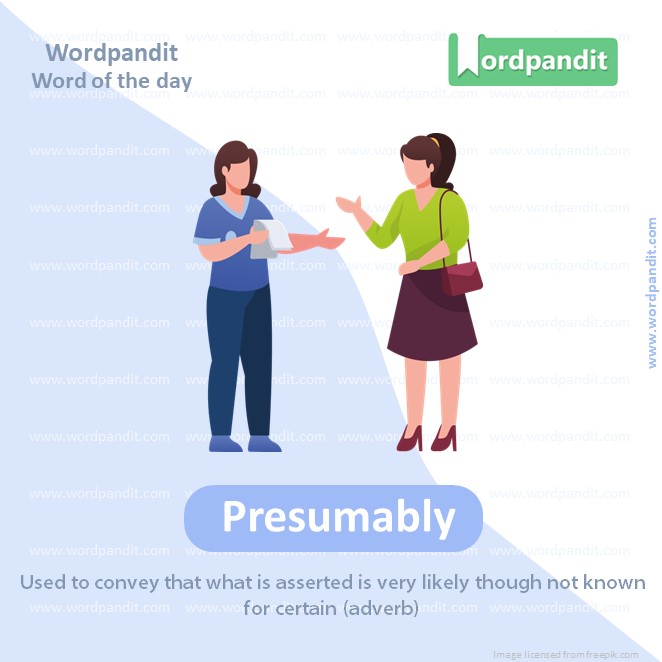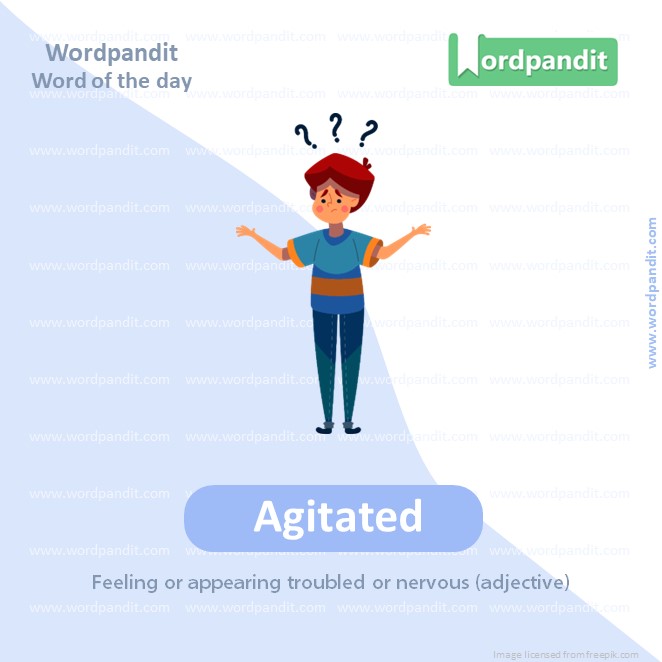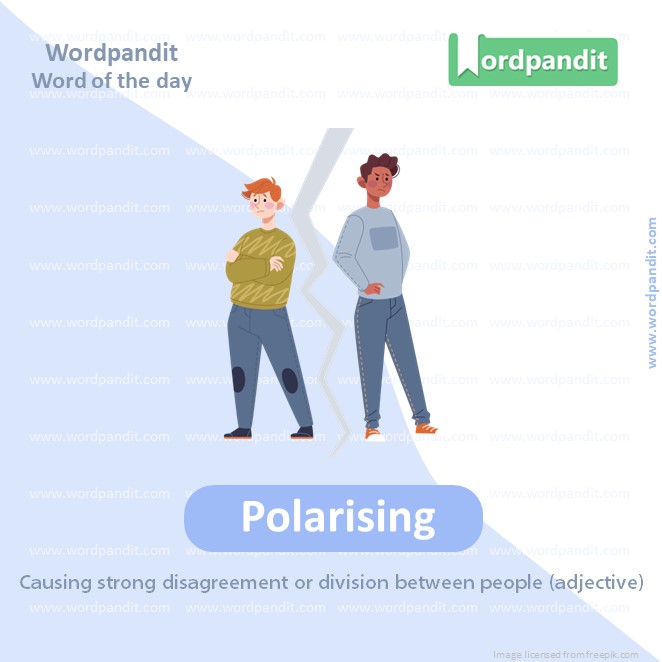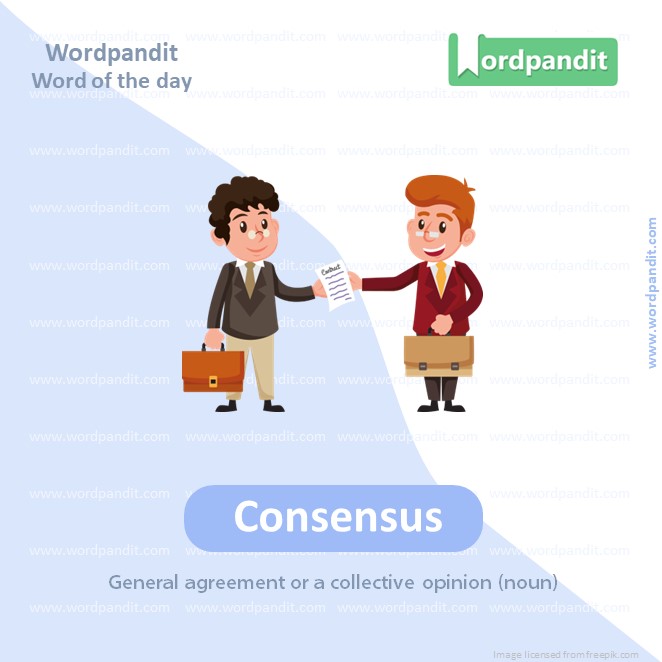Daily Vocabulary Words: List of Daily Used Words in Leading International Newspapers
Hi there. Welcome to this special section @ Wordpandit.
Our endeavour here is very simple: to highlight important daily vocabulary words, which you would come across in leading newspapers in the country. We have included the following newspapers in our selection:
• The New York Times
• The Washington Post
• Scientific American
• BBC
• The Guardian
• Psychology Today
• Wall Street Journal
• The Economist
We are putting in extensive work for developing your vocabulary. All you have got to do is be regular with this section and check out this post on a daily basis. This is your repository of words that are commonly used and essentially, we are posting a list of daily used words. Hence, this has significant practical application as it teaches you words that are used commonly in leading publications mentioned above.
Visit the website daily to learn words from leading international newspapers.
WORD-1: Grudgingly
CONTEXT: The op-ed is a cathartic channel for anyone who has grudgingly touch-screened over an extra few bucks.
SOURCE: Washington Times
EXPLANATORY PARAGRAPH: Imagine you have to share your favorite toy with your friend, but you don’t really want to. If you share it anyway but feel a little unhappy or annoyed about it, that’s doing something grudgingly. It means you’re doing it but not with a happy heart.
MEANING: Done with reluctance or unwillingness (adverb).
PRONUNCIATION: GRUHJ-ing-lee
SYNONYMS: Reluctantly, unwillingly, resentfully, begrudgingly, sullenly.
USAGE EXAMPLES:
1. She grudgingly handed over her cookie to her brother.
2. He grudgingly agreed to help with the chores.
3. They grudgingly admitted they were wrong.
4. The child grudgingly did his homework.

WORD-2: Presumably
CONTEXT: to hear Biden’s description of their relationship, presumably braid one another’s hair.
SOURCE: Al Jazeera
EXPLANATORY PARAGRAPH: When you think something is true or likely but you’re not completely sure, you’re using presumably. Like if you see clouds and think it’s going to rain, you’re presumably expecting rain.
MEANING: Used to convey that what is asserted is very likely though not known for certain (adverb).
PRONUNCIATION: pre-ZOOM-uh-blee
SYNONYMS: Probably, likely, seemingly, apparently, ostensibly.
USAGE EXAMPLES:
1. Presumably, the show will start at 8 pm.
2. He will presumably finish the work by tomorrow.
3. Presumably, they missed the bus.
4. She’s not answering her phone, presumably because she’s busy.

WORD-3: Agitated
CONTEXT: An agitated Tory backbench and voters fatigued after nearly 13 years of a Tory government.
SOURCE: The Guardian
EXPLANATORY PARAGRAPH: If you feel very worried, nervous, or upset about something, like when you can’t find your favorite toy, that’s feeling agitated. It’s like being really restless and not calm.
MEANING: Feeling or appearing troubled or nervous (adjective).
PRONUNCIATION: AJ-ih-tay-ted
SYNONYMS: Disturbed, upset, unsettled, flustered, perturbed.
USAGE EXAMPLES:
1. She seemed agitated about the delay.
2. He became agitated when they mentioned his mistake.
3. An agitated crowd gathered outside.
4. The baby was agitated and crying.

WORD-4: Polarising
CONTEXT: The final straw came in a polarising piece in The Times last week.
SOURCE: The Guardian
EXPLANATORY PARAGRAPH: When something is polarising, it’s like when people either really, really like it or really, really don’t like it. There’s no in-between. Like some kids love broccoli and some kids really don’t!
MEANING: Causing strong disagreement or division between people (adjective).
PRONUNCIATION: PO-luh-rye-zing
SYNONYMS: Divisive, controversial, contentious, divisive, provocative.
USAGE EXAMPLES:
1. It’s a polarising political issue.
2. Her opinions are quite polarising.
3. The movie was polarising among critics.
4. His speech was polarising to the audience.

WORD-5: Consensus
CONTEXT: Politics where seeking consensus is seen as a strength.
SOURCE: The Guardian
EXPLANATORY PARAGRAPH: Consensus is when everyone in a group agrees on something. Like when you and your friends decide together what game to play.
MEANING: General agreement or a collective opinion (noun).
PRONUNCIATION: kuhn-SEN-sus
SYNONYMS: Agreement, concord, unanimity, accord, harmony.
USAGE EXAMPLES:
1. The team reached a consensus on the project.
2. There is a growing consensus that the policy must change.
3. They failed to reach a consensus.
4. A consensus was achieved among the members.
WORD-6: Leveraged
CONTEXT: When leveraged correctly, it’s a great way to curb climate change.
SOURCE: The Guardian
EXPLANATORY PARAGRAPH: Leveraged is like using something you have to get something else. Like using your good grades to get extra TV time. It’s using what you have in a smart way to get more.
MEANING: Used something to maximum advantage (verb).
PRONUNCIATION: LEV-er-ijd
SYNONYMS: Utilized, capitalized on, exploited, harnessed, employed.
USAGE EXAMPLES:
1. He leveraged his experience to get the job.
2. The company leveraged its reputation to expand.
3. She leveraged her skills to solve the problem.
4. The deal was leveraged by their previous success.

WORD-7: Galvanise
CONTEXT: Prime minister back in high office is also likely to galvanise Brexiteer backbench discontent.
SOURCE: Washington Times
EXPLANATORY PARAGRAPH: Galvanise is like when someone or something gives you a big boost of energy or excitement to do something. Like when your coach gives a great speech and you feel ready to win the game.
MEANING: Shock or excite into taking action (verb).
PRONUNCIATION: GAL-vuh-nyze
SYNONYMS: Motivate, stimulate, inspire, energize, spur.
USAGE EXAMPLES:
1. The speech galvanised the troops.
2. She was galvanised into action by the news.
3. The crisis galvanised them to vote.
4. His words galvanised the audience.
WORD-8: Leapfrogged
CONTEXT: Labour has leapfrogged ahead in opinion polls.
SOURCE: Washington Times
EXPLANATORY PARAGRAPH: Leapfrogged is like when you jump over something in a game, but here it means moving ahead of others quickly. Like if you were in a race and suddenly ran faster to get ahead of everyone.
MEANING: Move forward or make progress quickly and suddenly (verb).
PRONUNCIATION: LEEP-frogd
SYNONYMS: Surpass, overtake, outstrip, outdo, bypass.
USAGE EXAMPLES:
1. The company leapfrogged its competitors.
2. She leapfrogged several candidates to get the promotion.
3. Technology has leapfrogged in the past decade.
4. He leapfrogged to the top of his class.
WORD-9: Contrarian
CONTEXT: Piece with other instances of clampdown on contrarian voices on the crisis in West Asia.
SOURCE: Washington Times
EXPLANATORY PARAGRAPH: A contrarian is someone who thinks very differently from most people. If everyone likes sunny days but you love rainy days, that’s being contrarian. It’s like going the opposite way.
MEANING: A person who opposes or rejects popular opinion (noun).
PRONUNCIATION: kuhn-TRAY-ree-uhn
SYNONYMS: Dissenter, nonconformist, maverick, individualist, skeptic.
USAGE EXAMPLES:
1. He’s a well-known contrarian in the field.
2. Her contrarian views often caused debates.
3. As a contrarian, he enjoyed challenging the norm.
4. She took a contrarian position in the meeting.
WORD-10: Untenable
CONTEXT: I am being asked to accept a sweeping and untenable definition of anti-Semitism that conflates the Jewish people with the Israeli state.
SOURCE: Washington Times
EXPLANATORY PARAGRAPH: Untenable is like when an idea or situation is so bad or wrong that you just can’t support or defend it. It’s like saying a tiny umbrella can keep you dry in a huge storm.
MEANING: Not able to be maintained or defended against criticism or objection (adjective).
PRONUNCIATION: un-TEN-uh-buhl
SYNONYMS: Indefensible, unsustainable, unjustifiable, unreasonable, flawed.
USAGE EXAMPLES:
1. Their argument was untenable.
2. The position became untenable and she resigned.
3. His behavior made his stay untenable.
4. The theory was proven untenable.
vocabulary classes
In today’s multicultural world, knowledge is your greatest asset. And in this pool of knowledge, one arena that often goes underestimated is ‘vocabulary classes’. Most people limit the concept of vocabulary to knowing a few fancy words. However, it is much more; it’s about giving you the key to express your thoughts, feelings, and ideas more effectively.
Firstly, let’s examine why vocabulary classes are essential. When you take vocabulary classes, you’re essentially equipping your linguistic arsenal with words that allow you to articulate your messages more accurately. A well-developed vocabulary means not only knowing a multitude of words but also being able to utilize them in the appropriate context, thus enhancing your communication skills.
Now, how should we approach learning in vocabulary classes? The process of expanding your vocabulary should not be stressful. The best approach is to incorporate playfulness, curiosity, and active engagement. Incorporate reading, writing, listening, and speaking activities that are sourced from various contexts – books, movies, podcasts, discussions, and debates.
One important principle to remember when taking vocabulary classes is repetition. Repeated use of new words in different contexts will reinforce their meaning and solidify them in your memory, reducing the chance for forgetfulness.
Moreover, let’s not forget the role of technology in vocabulary classes. There’s a variety of applications and online platforms that have revolutionized the way we learn new words. They offer interactive classes, quizzes, games, and other engaging resources that make the learning process fun and effective.
In summary, vocabulary classes serve as a potent tool for enhancing your communication skills, and expressing your ideas confidently and clearly. Whether you are a business professional, student or just looking to improve your language abilities, vocabulary classes are amongst the best investments you could make. You not only learn new words but get the confidence and tools to wield them effectively.











